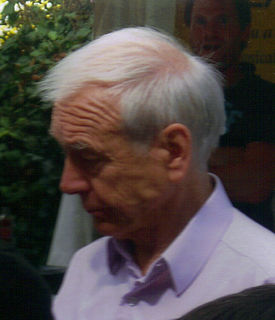A Quote by Edward Snowden
One concern I had while I was working actively in the intelligence community - being someone who had broad access, who was exposed to more reports than average individuals, who had a better understanding of the bigger picture - was that the post - World War II, post - Cold War directions of societies were either broadly authoritarian or [broadly] liberal or libertarian.
Quote Topics
Access
Actively
Authoritarian
Average
Being
Better
Bigger
Bigger Picture
Broad
Cold
Cold War
Community
Concern
Directions
Either
Exposed
Had
Individuals
Intelligence
Intelligence Community
Liberal
Libertarian
More
Picture
Post
Reports
Societies
Someone
Than
Understanding
War
Were
While
Working
World
World War
World War I
World War II
Related Quotes
The BBC has tended over the years to be broadly liberal as opposed to broadly conservative for all sorts of perfectly understandable reasons. The sort of people we've recruited - the best and the brightest - tended to come from universities and backgrounds where they're more likely to hold broadly liberal views than conservative.
In one sense, I have always felt glad to have had the war [World War II] in my childhood, because, as a result, nothing that has happened in the world since then has ever seemed quite so bad. On the other hand, I never entirely got over my feeling of being cheated when the promised era of peace in a wonderful "post-war world" failed to materialize. I could not understand how, after all that, people could ever even think of fighting again. And I still can't.
That's our nuclear weapons strategy [going to frighten people], as of the early post-Cold War years. And I think this is a real failure of the intellectual community, including scholarship and the media. It's not like you had headlines all over the place. And it's not secret, the documents are there. And I think that's probably the right picture.
The twentieth century had dispensed with the formal declaration of war and introduced the fifth column, sabotage, cold war, and war by proxy, but that was only the begining. Summit meetings for disarmament pursued mutual understanding and a balance of power but were also held to learn the strengths and weaknesses of the enemy. The world of the war-or-peace alternative became a world in which war was peace and peace war.
The pre-war empire had been sufficiently informal and sufficiently cheap for Parliament to claim authority over it without having to concern itself too much about what this authority entailed. The post-war empire necessitated a much greater investment in administrative machinery and military force. This build-up of control had to be paid for, either by British taxpayers or by their colonists.
I think I governed effectively. I don't have any doubts about that. I had the benefit, when I was in office, of having an excellent relationship with the Republican Party. We had superb bipartisan support and we had the highest batting average of any president since the Second World War, except Lyndon Johnson. He had a little better average than I did.
In America, we then made a commitment, particularly after World War II with the GI Bill, to massively expand our commitment to college education, and that meant we had more engineers and we had more scientists and that meant we had better technology, which meant that we were more productive and we could succeed in the global marketplace.
I don't know if Britain ever really achieved that much glamour. We had post-war austerity rather than post-war prosperity, and our cultural products of the time include some pretty dour kitchen-sink dramas of the A Kind of Loving variety. (This kind of film seems disillusioned with the sixties before they've even really begun.)
At the beginning of World War II the U.S. had a mere 600 or so first-class fighting aircraft. We rapidly overcame this short supply by turning out more than 90,000 planes a year. The question at the start of World War II was: Do we have enough funds to produce the required implements of war? The answer was No, we did not have enough money, nor did we have enough gold; but we did have more than enough resources. It was the available resources that enabled the US to achieve the high production and efficiency required to win the war. Unfortunately this is only considered in times of war.
In an all-out nuclear war, more destructive power than in all of World War II would be unleashed every second during the long afternoon it would take for all the missiles and bombs to fall. A World War II every second-more people killed in the first few hours than all the wars of history put together. The survivors, if any, would live in despair amid the poisoned ruins of a civilization that had committed suicide.



































